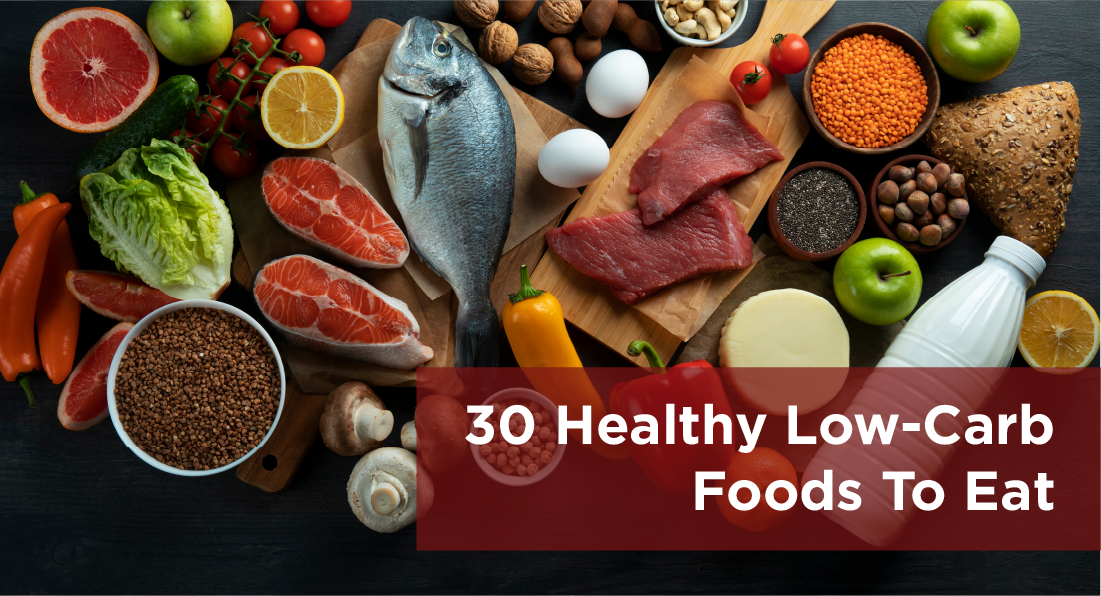
30 Healthy Low-Carb Foods to Eat
If you want to lose weight or get healthier, reducing carbs can help.
However, many people need help finding low-carb options that are also nutritious and satisfying.
In this article, we'll explore 30 healthy low-carb foods that you can incorporate into your diet to help you reach your health goals.
Also, if you want to know what to buy for a low-calorie diet in India, Please see the Ultimate Keto Shopping Guide.
Why Choose Low-Carb Foods?
1. Weight loss: Low-carb diet plans have been proven effective. By reducing carb intake, the body is prompted to burn stored fat for energy.
2. Improved blood sugar control: Reducing carbs helps regulate blood sugar levels, particularly beneficial for individuals with diabetes or insulin resistance.
3. Increased energy levels: Low-carb foods provide a steady release of energy, preventing energy crashes often associated with high-carb meals.
4. Reduced cravings: Low-carb diets can help curb cravings for sugary and processed foods, making it easier to stick to a healthy diet.
5. Lower triglyceride levels: By reducing carb intake, low-carb diets have been shown to effectively lower triglyceride levels, which are a type of fat found in the blood.
6. Improved heart health: Low-carb foods, significantly those rich in healthy fats like avocados and nuts, can help improve heart health by reducing levels of LDL cholesterol and triglycerides.
7. Enhanced mental clarity: Some individuals report experiencing improved mental focus and clarity when following a low-carb diet, possibly due to stable blood sugar levels.
8. Reduced inflammation:Low-carb diets have been associated with decreased inflammation markers, which can contribute to improved overall health and reduced risk of chronic diseases.
9. Better digestive health: Low-carb foods are often high in fibre, which can promote healthy digestion and prevent issues like constipation.
10. Improved satiety:Low-carb meals can help you feel fuller for extended periods, reducing the chances of overeating and aiding in weight management.
Additionally, many low-carb foods are also high in nutrients, making them an excellent choice for a well-rounded and healthy diet.
High Potassium Low Carb Foods
Potassium is an essential mineral that plays a role in many bodily functions, including regulating blood pressure and maintaining proper nerve and muscle function. Many low-carb foods are also high in potassium, making them an excellent choice for those looking to increase their intake of this vital nutrient.
Here are ten readily available Indian low-carb foods that contain high potassium:
- Avocado
- Spinach
- Mushrooms
- Broccoli
- Brussels sprouts
- Zucchini
- Bell peppers
- Cauliflower
- Cabbage
- Tomatoes
These foods are not only low in carbs but also rich in potassium, making them a great addition to a low-carb diet. Consider portion sizes and individual dietary requirements when incorporating these foods into your meal plan.
Low Carb Soft Foods
For those who have difficulty chewing or have dental issues, finding low-carb options that are soft and easy to eat can be a challenge. Here are some low-carb soft foods that are both nutritious and delicious:
1. Paneer (Indian cottage cheese): It is low in carbs and protein, making it an excellent choice for a low-carb soft food option.
2. Moong Dal Khichdi: This dish is made with lentils and rice, but you can reduce the amount of rice to make it low in carbs while still providing a soft and nutritious meal.
3. Palak Paneer: Spinach and paneer (cottage cheese) cooked with Indian spices make for a nutritious and low-carb soft food option.
4. Lauki (Bottle Gourd) Curry: This vegetable is low in carbs and can be cooked into a soft and flavorful curry.
5. Tofu Bhurji: Tofu scrambled with spices and vegetables is a great low-carb alternative to scrambled eggs.
6. Baingan ka Bharta: Roasted eggplant mashed with spices and garnished with coriander leaves is a tasty and low-carb option.
7. Vegetable Daliya: Broken wheat cooked with mixed vegetables is a nutritious and soft food option for a low-carb diet.
8. Cauliflower Rice: Grated cauliflower sautéed with spices can be a delicious and low-carb substitute for rice.
9. Chia Pudding: Soaked chia seeds mixed with milk and flavoured with fruits or nuts can be a healthy and low-carb dessert or snack option.
10. Cucumber Raita: Grated cucumber mixed with yogurt, spices, and herbs is a refreshing and low-carb side dish.
Consider portion sizes and individual dietary requirements when incorporating these low-carb soft foods into your diet.
Low-Carb Indian Foods
One of the biggest challenges of following a low-carb diet is finding options for every meal that are both satisfying and nutritious. Here are some low-carb foods you can incorporate into your breakfast, lunch, and dinner.
Following a low-carb diet can be challenging, especially when finding options that are both satisfying and nutritious. If you're an Indian looking to incorporate low-carb foods into your daily meals, here are some breakfast, lunch, and dinner options that you can try:
Breakfast:
- Scrambled eggs with vegetables (e.g., spinach, bell peppers, onions) - approximately 300 calories
- Paneer (Indian cottage cheese) bhurji - approximately 250 calories
- Moong dal chilla (lentil crepes) - approximately 200 calories
Lunch:
- Chicken tikka salad with mixed greens and cucumber - approximately 350 calories
- Palak paneer (spinach with cottage cheese) - approximately 300 calories
- Tandoori chicken with raita (yogurt dip) and salad - approximately 400 calories
Dinner:
- Grilled fish with sautéed vegetables - approximately 350 calories
- Baingan bharta (roasted eggplant) with cauliflower rice - approximately 300 calories
- Chicken curry with cauliflower rice - approximately 400 calories
These low-carb Indian meal options not only help in reducing carbohydrate intake but also provide essential nutrients. It's important to note that the calorie count mentioned is approximate and may vary depending on portion sizes and cooking methods.
Remember to include a variety of vegetables, lean proteins, and healthy fats in your low-carb Indian meals to ensure a balanced diet. Additionally, you can incorporate spices and herbs like turmeric, cumin, and coriander to enhance the flavour of your dishes.
By choosing low-carb Indian foods, you can enjoy the flavours of traditional cuisine while maintaining a healthy and balanced diet.
Low-Carb Indian Foods
Low-carb Indian snacks are an excellent option for those following a low-carb diet. These snacks not only satisfy your hunger but also provide you with essential nutrients. Here are some delicious and healthy low-carb Indian snacks that you can enjoy:
1. Peanut Chaat: Made with roasted peanuts, chopped vegetables, and Indian spices, this snack is not only low in carbs but also rich in protein and fibre. It provides essential nutrients like potassium, magnesium, and vitamin E.
2. Cucumber Raita: Cucumber raita is a refreshing low-carb snack made with yogurt, grated cucumber, and spices. It is an excellent source of calcium and probiotics, which are beneficial for your gut health.
3. Masala Omelette: Omelette made with eggs, onions, tomatoes, and spices is a quick and easy low-carb snack. It is packed with protein, vitamins, and minerals, making it a nutritious choice.
4. Paneer Tikka: Paneer tikka is a popular Indian snack made with marinated cottage cheese and grilled to perfection. It is low in carbs and high in protein, calcium, and phosphorus.
5. Spinach and Cheese Balls: These delicious balls are made with spinach, cheese, and spices. They are low in carbs and provide you with important nutrients like iron, calcium, and vitamin A.
6. Almond Butter: Almond butter is a healthy and low-carb alternative to regular butter. It is rich in healthy fats, protein, and fibre. You can enjoy it on a slice of low-carb bread or use it as a vegetable dip.
7. Cauliflower Pakoras: Made with cauliflower florets and chickpea flour, these pakoras are a tasty and low-carb snack. They are crispy on the outside and soft on the inside, perfect for satisfying your cravings.
8. Mint Chutney: Mint chutney is a flavourful dip made with fresh mint leaves, yogurt, and spices. It is low in carbs and adds a burst of freshness to your snacks.
These low-carb Indian snacks are not only delicious but also provide you with important nutrients. Incorporating them into your diet can help you maintain a healthy, low-carb lifestyle.
Low-Carb Substitutes for High-Carb Foods
Here are some low-carb food alternatives for high-carb foods that are commonly used in Indian cuisine:
1. Cauliflower rice: Instead of regular rice, you can make cauliflower rice by pulsing cauliflower florets in a food processor. It can be used as a substitute in dishes like biryani or pulao.
2. Zucchini noodles: Zucchini noodles, also known as zoodles, can be used as a replacement for pasta in dishes like spaghetti or noodles. They are low in carbs and provide a similar texture.
3. Cabbage wraps: Instead of tortillas or bread, you can wrap your favourite Indian fillings in cabbage leaves. They are a great low-carb alternative for wraps or rolls.
4. Paneer tikka: Paneer tikka is a popular Indian dish made with chunks of paneer (Indian cottage cheese) marinated in spices and grilled. It can be a delicious low-carb alternative to high-carb appetizers like samosas.
5. Baingan ka bharta: Baingan ka bharta is a flavorful dish made with roasted brinjal, spices, and onions. It can be enjoyed as a low-carb alternative to words like baingan ka bharta (mashed eggplant).
Remember to adjust the spices and ingredients according to your taste preferences. These low-carb alternatives can help you enjoy Indian cuisine while reducing your carb intake.
High Fiber Low Carb Foods:
- Chia seeds: Chia seeds are a great source of fibre and can be added to smoothies and yogurt or used as a topping for salads or oatmeal.
- Flaxseeds: Flaxseeds are rich in fibre and can be ground and used in baking or sprinkled on top of foods like yoghurt or cereal.
- Lentils: Lentils are a versatile legume that can be used in soups, stews, or salads. They are high in fibre and a good source of protein.
- Spinach: Spinach is a leafy green vegetable that is low in carbs and high in fibre. It can be used in salads, stir-fries, or as a side dish.
- Broccoli: Broccoli is a cruciferous vegetable that is low in carbs and high in fibre. It can be steamed, roasted, or added to stir-fries.
- Brussels sprouts: Brussels sprouts are a nutritious vegetable low in carbs and fibre. They can be roasted, sautéed, or added to salads.
- Avocado: Avocado is a creamy fruit low in carbs and fibre. It can be sliced and added to salads, mashed and spread on toast, or used as a substitute for butter or mayonnaise.
- Almonds: Almonds are a nutrient-dense nut that is low in carbs and high in fibre. They make a great snack or can be added to trail mixes or salads.
- Berries: Berries such as strawberries, blueberries, and raspberries are low in carbs and high in fibre. They can be eaten fresh, added to smoothies, or used as a topping for yogurt or oatmeal.
- Coconut flour: Coconut flour is a low-carb, high-fiber flour alternative that can be used in baking recipes. It adds a subtle coconut flavour and can be used in sweet and savoury dishes.
How to Incorporate Low-Carb Foods into Your Diet

Incorporating low-carb foods into your diet can be challenging at first, but with some planning and preparation, it can become second nature. Here are some tips for incorporating low-carb foods into your diet:
- Plan your meals and snacks ahead of time to ensure you have low-carb options available.
- Experiment with different low-carb substitutes for high-carb foods to find what works best.
- Incorporate a variety of low-carb foods into your diet to ensure you're getting a balance of nutrients.
- Meal prep on the weekends to have low-carb options ready to go for the week ahead.
- Feel free to try new recipes and get creative with your low-carb meals.
Conclusion
Incorporating low-carb foods into your diet can have numerous health benefits, including weight loss and improved overall health. By choosing high potassium low carb foods, low carb soft foods, and low-carb options for every meal, you can create a well-rounded and satisfying diet that supports your health goals.
Experiment with different low-carb substitutes, and be bold and creative with your meals. With some planning and preparation, you can easily incorporate low-carb foods into your diet and reap the benefits of a healthier lifestyle.
This Blog post is an initiative by Lo! Foods, to provide accurate and Nutritionist / Doctor approved information related to Health. Lo! Foods is India's leading brand for Everyday Functional Foods. Foods designed for specific Health conditions or Needs. Lo! Foods also runs India's largest range of Low Carb Healthy Cloud Kitchens, under the brand names of Lo!, ProteinChef, ATH (All Things Healthy) and DiabeSmart.











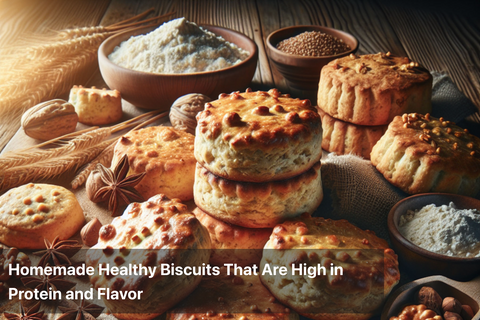
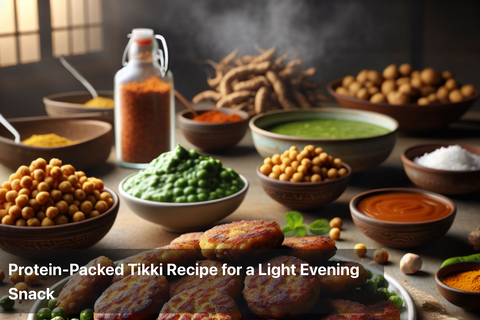
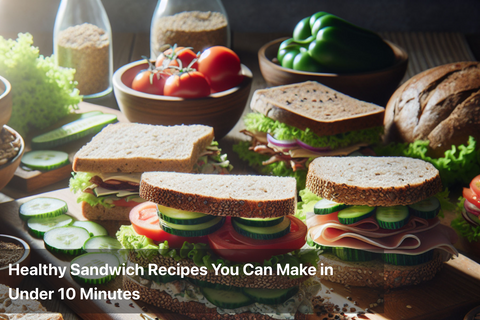
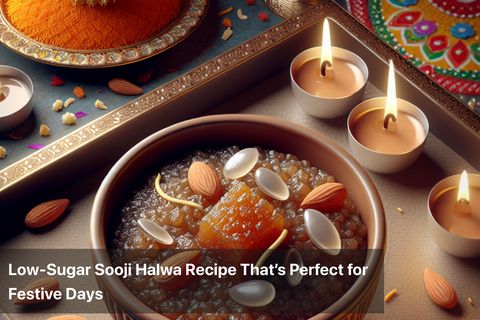
Leave a comment
Your email address will not be published.